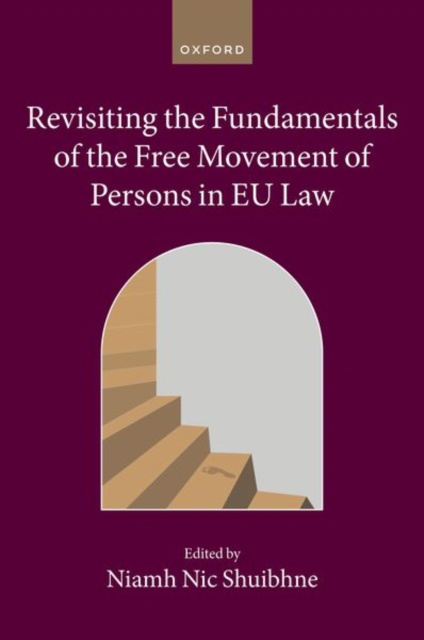
Revisiting the Fundamentals of the Free Movement of Persons in EU Law Hardback
Edited by Niamh (Professor of European Union Law, Professor of European Union Law, University of Nic Shuibhne
Part of the Collected Courses of the Academy of European Law series
Hardback
Description
How 'free' is the free movement of persons? Why does the law that enables it need to be 'revisited'?
This collection of essays, curated by Claire Kilpatrick and Joanne Scott for the European University Institute's 2020 Academy of European Law, addresses these questions.
Across different examples - migration, posted workers, social security, Brexit, and Union citizenship - each chapter revisits the categories that have become entrenched in EU law on the free movement of persons and the boundaries that have been constructed as a result.
Do they still represent meaningful differences? Are they valuable compass points or inhibitors of progress?
Do they ensure comprehensive or fragmented protection of the person?
In reconsidering the fundamentals of EU free movement law, the book draws attention to tensions that have not yet been properly resolved: between appropriate difference and problematic discrimination, or between the mythology and the experienced reality of free movement for the people who actually move.
Its chapters consider how the free movement of persons connects to and is shaped by the EU legal spaces beyond free movement as well as by the space beyond law.
The contributors do not shy away from provoking a rethink of core principles.
They interrogate these fundamentals and the changing objectives of the free movement of persons to take up the challenge of doing it better: of making it both more protective of people and more resilient in ethical, systemic, and sociological terms.
Information
-
Out of stock
- Format:Hardback
- Pages:224 pages
- Publisher:Oxford University Press
- Publication Date:29/08/2023
- Category:
- ISBN:9780198886273
Information
-
Out of stock
- Format:Hardback
- Pages:224 pages
- Publisher:Oxford University Press
- Publication Date:29/08/2023
- Category:
- ISBN:9780198886273










